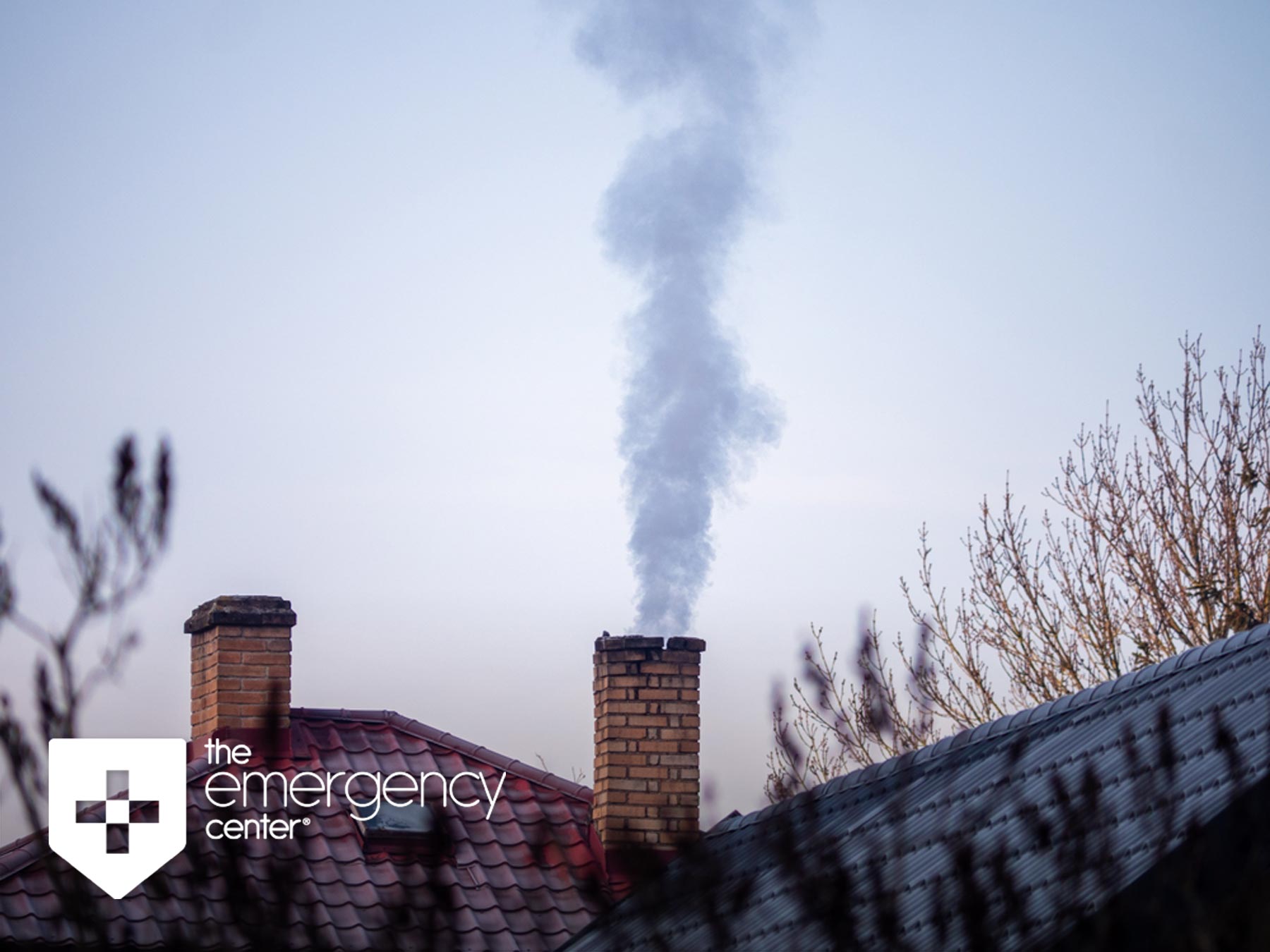Carbon Monoxide Awareness: Protecting Your Family from the “Silent Killer”
Understanding The Dangers Of CO Poisoning, How To Prevent It & When To Seek Emergency Care
Carbon monoxide (CO) is an odorless, colorless, and tasteless gas that is often referred to as the “silent killer.” Each year, thousands of people suffer from carbon monoxide poisoning, and unfortunately, many cases are preventable. At The Emergency Center, we want to ensure that you and your loved ones are informed about the dangers of CO poisoning, how to prevent it, and when to seek emergency care.

Top Sources of Carbon Monoxide in Your Home
Carbon monoxide is produced when fuels like gas, oil, wood, or charcoal burn incompletely. Common household sources of CO include:
- Gas-powered appliances such as stoves, water heaters, and furnaces.
- Fireplaces and wood-burning stoves.
- Motor vehicles running in enclosed spaces like garages.
- Generators and power tools powered by gasoline.
- Grills and camp stoves used indoors or in poorly ventilated areas.
The danger of CO poisoning increases during colder months, as people tend to rely on heating appliances and may use unsafe methods to warm their homes during power outages.
Recognizing the Symptoms of Carbon Monoxide Poisoning
Carbon monoxide poisoning can mimic the symptoms of other illnesses, making it challenging to identify. Common symptoms include:
- Headache
- Dizziness
- Nausea or vomiting
- Shortness of breath
- Weakness or fatigue
- Confusion or difficulty concentrating
- Chest pain
Severe CO poisoning can lead to fainting, seizures, coma, and even death. Infants, elderly individuals, and those with pre-existing health conditions are particularly vulnerable to the effects of CO poisoning.
Essential Tips to Prevent Carbon Monoxide Poisoning
Prevention is key to protecting your family from carbon monoxide poisoning. Follow these safety tips to reduce your risk:
-
1. Install CO Detectors: Place carbon monoxide detectors on every level of your home and near sleeping areas. Test them monthly and replace batteries regularly.
2. Maintain Appliances: Have gas-powered appliances, fireplaces, and heating systems inspected and serviced annually by a qualified technician.
3. Use Generators Safely: Never use generators indoors or in enclosed spaces. Keep them at least 20 feet away from windows, doors, and vents.
4. Ventilate Properly: Ensure that chimneys, flues, and vents are free from blockages and debris.
5. Avoid Running Vehicles in Enclosed Spaces: Do not run your car or truck inside a garage, even if the door is open.
6. Be Cautious with Space Heaters: Only use space heaters that are approved for indoor use and have safety features such as automatic shutoff.
By following these precautions, you can significantly reduce the risk of CO exposure in your home.
When to Seek Emergency Care for Carbon Monoxide Exposure
If you or a loved one experience symptoms of carbon monoxide poisoning, it is crucial to act quickly. Get fresh air immediately by leaving the area where CO exposure may have occurred. Call 911 or head to the nearest emergency room if symptoms persist or worsen. Signs that you need urgent medical attention include:
- Loss of consciousness
- Severe headache or confusion
- Difficulty breathing
- Chest pain
- Fainting or seizures
The Emergency Center: Comprehensive Care for CO Poisoning
At The Emergency Center, we are equipped to handle all levels of carbon monoxide poisoning. Our state-of-the-art facilities and experienced medical team can provide:
- Rapid blood tests to measure CO levels in your bloodstream.
- Oxygen therapy, including 100% oxygen via a mask.
- Continuous monitoring and treatment to address symptoms and prevent complications.
The Emergency Center offers 24/7 care with no wait times, ensuring that you or your loved one can receive prompt attention in a comfortable environment.
Take Action Today to Protect Your Family from Carbon Monoxide
Awareness and prevention are your best defenses against carbon monoxide poisoning. Take proactive steps to ensure your home is safe, and familiarize yourself with the symptoms of CO exposure. If you ever suspect carbon monoxide poisoning, don’t hesitate to seek medical care immediately.
At The Emergency Center, we are committed to keeping you and your family safe. With advanced treatment options and compassionate care, we are here to help you through any emergency, including carbon monoxide poisoning. Together, we can work to prevent tragedies caused by the “silent killer.”

The Emergency Center
San Antonio
11320 Alamo Ranch Pkwy
San Antonio, TX 78253
Phone: 210-485-3644
Conroe
4019 Interstate 45 N,
Conroe, TX 77304
Phone: 936-247-9457
